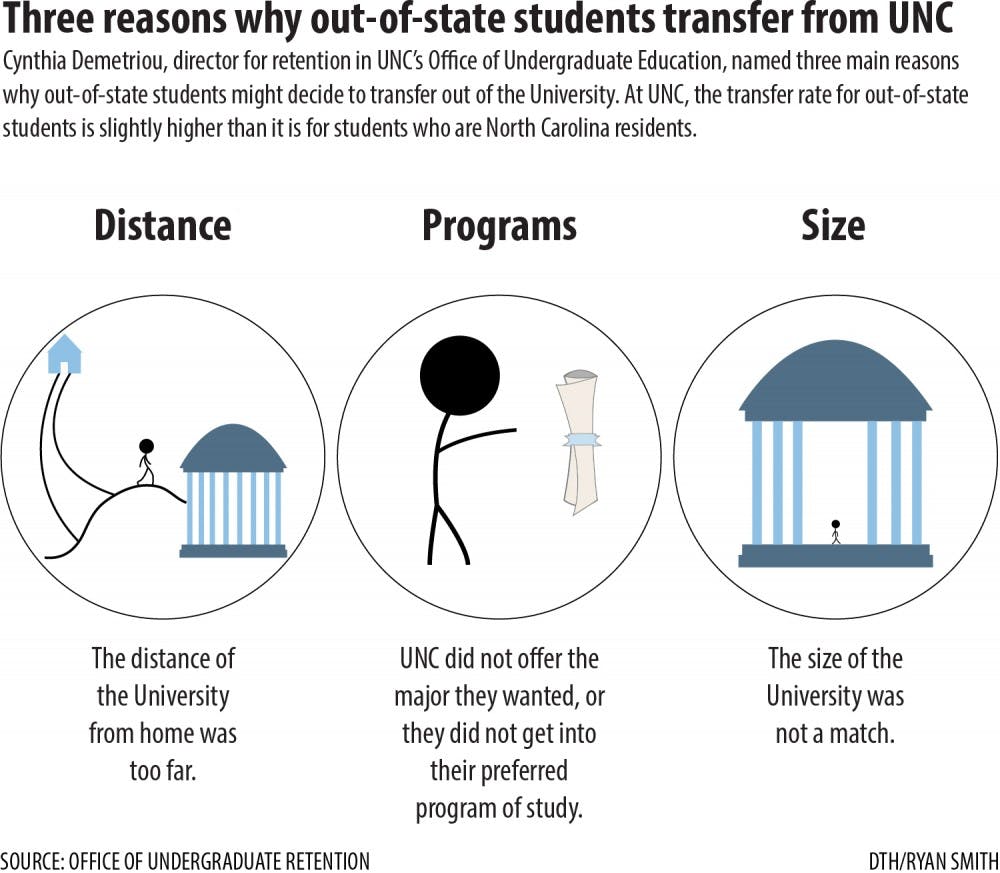“When I was in high school, I thought I wanted a bigger state school,” she said, recalling her experience applying to colleges. “I fell in love with UNC when I toured it my junior year of high school — my mom actually went to Duke, but I hated it when we visited.”
Scott is now a senior at Brown University. She transferred after spending her first year and a half of college at UNC. Her experience is an example of just one factor that influences out-of-state students who decide not to return to UNC.
“I felt like a small fish in a huge pond. I came from a small boarding school in New England, where I had a lot of attention from my teachers,” Scott said. “The size of the school ended up being why I transferred.”
According to data from UNC’s Office of Institutional Research and Assessment, the retention rate for out-of-state students is about two percentage points less than the rate for students from North Carolina. Of the in-state freshmen who entered UNC in fall 2012, 96.3 percent of students returned for their second fall, and 93.4 percent returned for a third fall.
Of the out-of-state students in the same class, 95.1 percent returned for their second fall, while 91.4 percent returned for their third.
Tara O’Connor, co-president of the Out-Of-State Student Association (OSSA), said though the difference in retention rate is small, many out-of-state students think about transferring at one point or another.
“I don’t think we necessarily feel left out, but there are times when it’s difficult being out-of-state — like on long weekends, usually they aren’t long enough for it to be worth us going home,” she said.
Cynthia Demetriou, director for Retention in the Office of Undergraduate Education, said the university often compares its graduation and retention rates to other large public universities.




